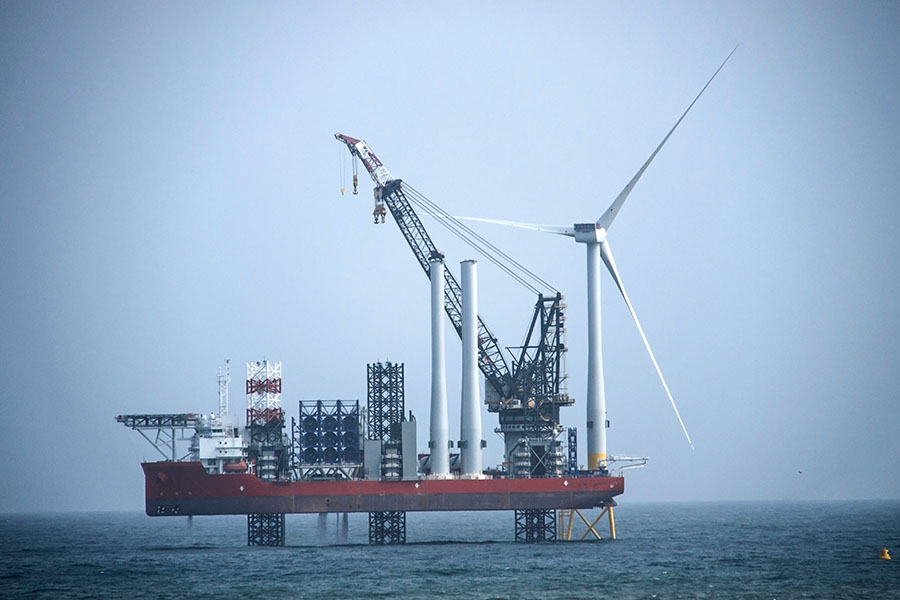Business resilience, digital transformation, talent retention and decarbonisation will shape strategic direction
We have arrived in 2022 facing continued challenges on the back of several years of global disruption. Businesses are emerging from the turmoil created by the Covid-19 pandemic, compounded by energy market volatility, geopolitical uncertainty, and the structural and economic realities of decarbonisation.
Despite the obstacles facing the sector, the energy industry has mostly emerged strong, demonstrating impressive resilience during a period of unparalleled turbulence. 2022 will see CEOs of energy companies responding to the ongoing repercussions of the Covid-19 pandemic, seizing the opportunities presented by rising energy prices and shifting international financial structures, and seeking to future-proof their business models as they prepare for the global energy transition.
Business resilience no longer just a nice-to-have
The recent external factors influencing business strategy won’t disappear anytime soon and the ripple effects of the pandemic will be felt for many years to come. The most successful companies will be positioned to adapt and respond to changing market opportunities and challenges.
In many cases new business models and management systems established in response to the human resource and supply chain disruption caused by the Covid-19 pandemic were “accelerated by months, even years”, according to a KPMG report. Those more agile energy companies will have gone into the new year on the front foot and in 2022 their CEOs will apply long-term business resilience strategies to ensure they don’t squander their competitive advantage.
Accelerating digital transformation
According to KPMG, approximately half the CEOs surveyed for its energy sector CEO outlook plan to invest capital in “new technology, digitalisation, workforce skills, and capabilities”.
Digital transformation is a business-wide structural change, transforming the energy value chain, improving efficiency and safety, and driving returns in value. Implementing digital technologies, including cloud-based solutions which incorporate business management systems and ERP with fast-track automation, radically improves a company’s ability to resource, track, manage and monitor projects, making the business nimbler and transforming the customer experience.
The early adopters in the sector, the energy companies already on their digital transformation journey, will be well-positioned for success in the long-term.
Agile, hybrid workforce structures will increase talent retention, productivity… and profit margins
Attracting, motivating, and retaining talent will be a priority for all energy sector CEOs in 2022 and beyond.
The extended remote working arrangements mandated during the pandemic will put pressure on companies to offer more flexible and hybrid working models going forward. This shift in employee expectations was highlighted in a Deloitte analysis of the oil and gas industry 2022 outlook which emphasised the need for flexibility and agility in workforce structures.
Strategic investment in the right technology – work management systems, project integration and automation software – will facilitate coordination and communication among employees and customers, empowering hybrid, remote and cross border teams. And an empowered, motivated workforce means an increase in both productivity and profit.
Sustainability and the move to decarbonisation
The global energy industry is transforming the way it operates. The focus on the climate crisis and the necessary decarbonisation of the global economy from fossil-based to zero-carbon will drive companies to adapt, whether they are ready or not.
Investment in technology, business systems and structures will facilitate a company’s ability to navigate this shifting landscape and emerge strong and competitive.
___
About us
Xergy Group’s Proteus work management solution is designed to work with your existing systems, and to scale and evolve as your business evolves. It was created by energy sector professionals, for the diversified energy sector, and delivers an end-to-end project management software platform compliant with ISO audit requirements and common project management frameworks.
How to get Proteus
Proteus’ work management software is a cloud-based system designed for businesses of all sizes to handle projects of unlimited complexity. Each Proteus feature is aimed at making bottom line improvements by improving utilisation, streamlining workflows, providing quick and efficient access to resources and reducing overheads. One of the unique advantages of Proteus is that we offer a free onboarding consultation service to ensure your company account is set up according to your company’s needs.
We recommend getting setup on a free trial. Proteus operates under a software-as-a-service (SaaS) model. We offer Enterprise packages and flexible pricing solutions: contact our team to learn more.
We designed Proteus to be simple, and that means you can get up and running on Proteus without an IT team or support from a programmer. You will want to spend a bit of time configuring the admin console so that you have everything set up to suit your company structure, but it’s very intuitive and you don’t need a PhD in IT. However, we want you to get the best out of what is a brilliantly powerful tool, so don’t hesitate to ask for our support. We have a team of product experts who are ready to help you with the configuration process, so get in touch today.



